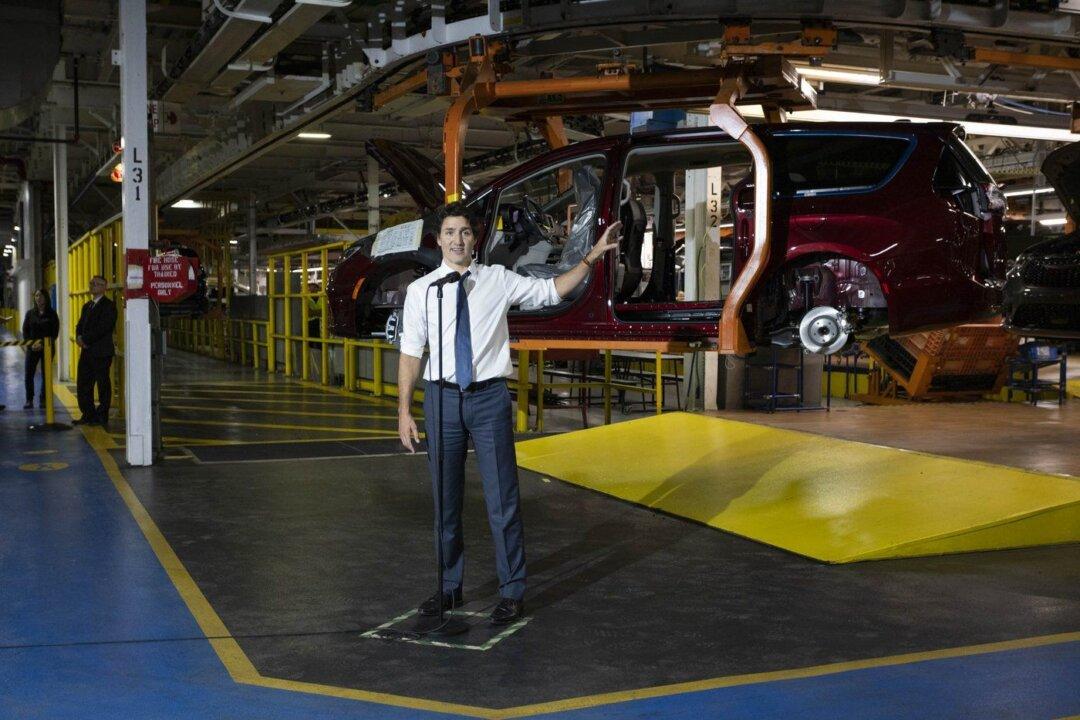Prime Minister Justin Trudeau did not provide details on the continuing negotiations with auto- and battery-maker Stellantis on June 2, saying work was “ongoing” to bring the new electric vehicle battery plant to Windsor, Ontario.
“Conversations are still ongoing with Stellantis, so I won’t get into details, but we will continue to make sure we’re getting the right deals for Canadians that create great jobs for the future in growing industries that are going to support communities,” Trudeau said during a press conference alongside Polish Prime Minister Mateusz Morawiecki.





